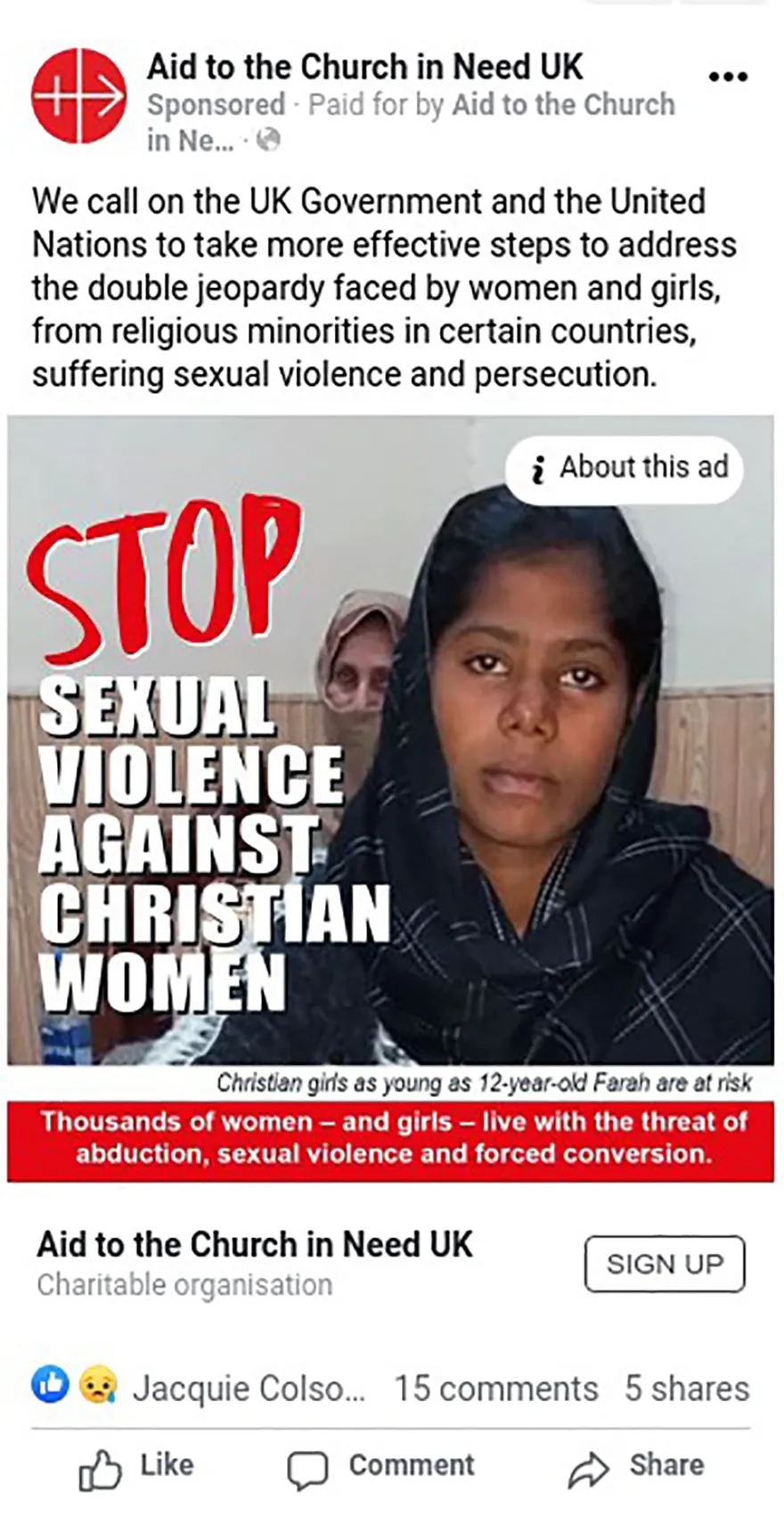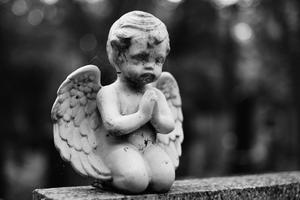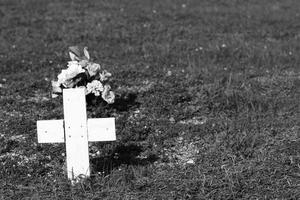Facebook ‘Kills’ Charity’s Petition Against Forced Marriage of Christian Women and Girls
“We are horrified that our campaign which aims to help suffering women has been censored in such a draconian manner.”

LONDON — A Catholic charity says it‘s been censored and de-platformed by Facebook without explanation in connection with the group’s recent petition drive calling for greater efforts to stop the abduction, forced conversion, and marriage of Christian women and girls in Islamic countries.
London-based Aid to the Church in Need UK launched its campaign with a series of Facebook ads in early November. The organization's effort was held in conjunction with the release of its new report, titled “Hear Our Cries." The report details the rampant and widely ignored abuse of women and girls, who are Christians or members of other religious minority groups, at the hands of Islamic extremists in Nigeria, Mozambique, Iraq, Syria, Egypt, and Pakistan.
Within a week, on Nov. 10, Facebook notified the charity that the social media giant was sharply curtailing the number of ads the group could post. The notice didn't specify a reason.
“This is because too many ads were hidden or reported for ad accounts associated with this business. People hide and report ads because they find them to be offensive, misleading, sexually inappropriate, violent, about a sensitive topic or for other reasons,” the notice states.
The charity says it also has lost access to the WhatsApp instant messaging platform and Instagram, both owned by Facebook.
Ever since the restrictions were imposed, Aid to the Church in Need UK says it has tried, without success, to get an explanation from Facebook. The closest the group has come to receiving a response was an email saying that the matter was being reviewed.
“We totally understand the urgency on this matter and how important this is for you, but such situations require a detailed investigation and solution, and considering the circumstances, we cannot offer a time limit,” reads the email, sent by “Alex” from “Facebook Concierge Support.”
John Pontifex, the charity‘s head of press and information, told CNA that Facebook’s action effectively “killed” the group‘s petition campaign, which wound up garnering 3,210 signatures. That total was about one-quarter of what the charity anticipated, based on the results of a prior petition drive, he said. Pontifex delivered the petitions on Dec. 15 to Fiona Bruce, a Member of Parliament who is Prime Minister Boris Johnson’s special envoy for religious freedom.
In a statement, Neville Kyrke-Smith, national director of Aid to the Church in Need UK, blasted Facebook for its actions.
“We are horrified that our campaign which aims to help suffering women has been censored in such a draconian manner,” he said.
“By claiming to have banned our advert for violating its guidelines, but refusing to say which guidelines or how, Facebook have made themselves judge, jury and executioner.”
Kyrke-Smith went on to accuse Facebook of aiding and abetting the abuses the charity is trying to stop.
“By curbing this campaign, they are silencing these women twice over," he said. “They are silenced when they are seized from their homes and forced to live with their abductors, and have now been silenced again by Facebook.”
A Facebook spokesperson could not immediately be reached for comment prior to publication.
Aid to the Church in Need is a pontifical foundation directly under the Holy See that advocates for people of faith who are “persecuted, oppressed or in pastoral need,” according to the group's mission statement.
- Keywords:
- petition
- forced marriage
- forced conversion
- aid to the church in need
- aid to the church in need uk

















